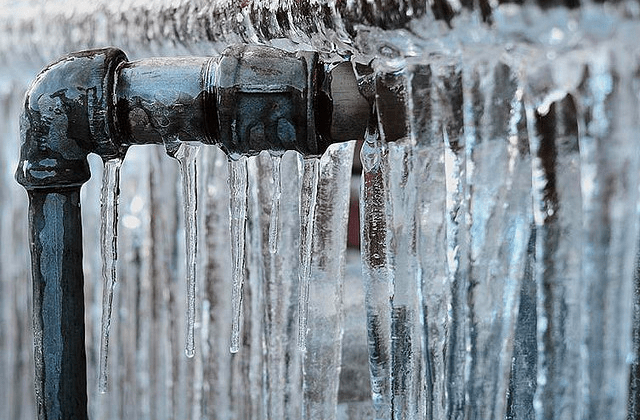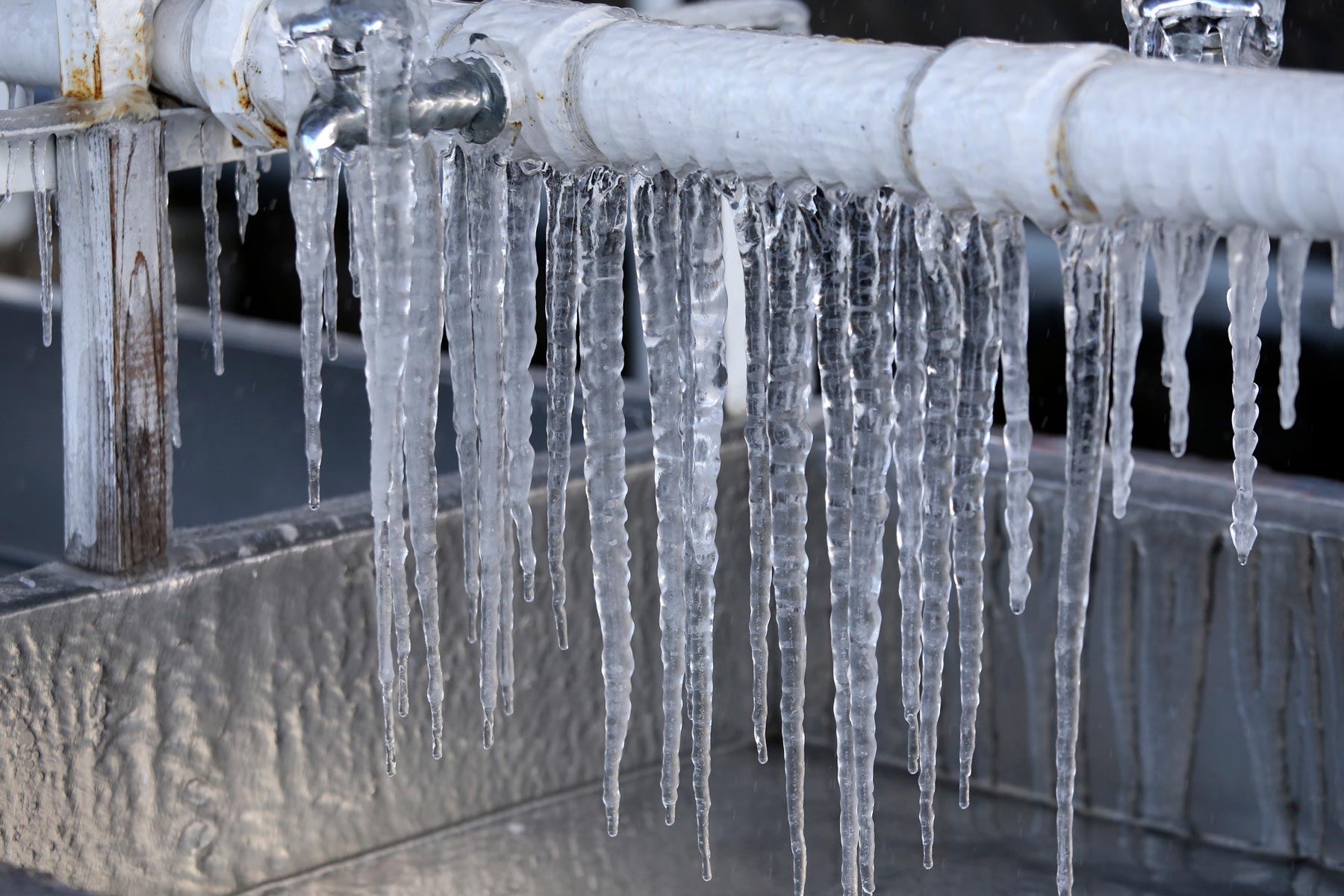Critical Approaches for Preventing Frozen Plumbing in Cold Weather
Critical Approaches for Preventing Frozen Plumbing in Cold Weather
Blog Article
Just how do you actually feel with regards to Helpful Tips to Prevent Frozen Pipes this Winter?

Cold weather can damage your plumbing, especially by freezing pipelines. Right here's just how to prevent it from occurring and what to do if it does.
Intro
As temperatures decline, the threat of icy pipes boosts, possibly bring about pricey repair work and water damages. Recognizing exactly how to avoid frozen pipelines is essential for house owners in cold environments.
Comprehending Frozen Pipes
What creates pipelines to freeze?
Pipelines ice up when subjected to temperature levels listed below 32 ° F (0 ° C) for expanded durations. As water inside the pipes ices up, it broadens, putting pressure on the pipe wall surfaces and potentially causing them to burst.
Threats and problems
Icy pipes can lead to water supply disturbances, residential property damage, and costly fixings. Ruptured pipelines can flood homes and create comprehensive architectural damages.
Indicators of Frozen Water Lines
Determining frozen pipes early can stop them from rupturing.
Exactly how to identify icy pipelines
Search for reduced water circulation from faucets, unusual odors or sounds from pipes, and visible frost on subjected pipelines.
Avoidance Tips
Shielding vulnerable pipelines
Cover pipelines in insulation sleeves or use warm tape to secure them from freezing temperature levels. Concentrate on pipelines in unheated or exterior areas of the home.
Heating strategies
Maintain indoor rooms appropriately heated, specifically locations with plumbing. Open closet doors to allow warm air to flow around pipes under sinks.
Safeguarding Outdoor Plumbing
Yard tubes and outside faucets
Separate and drain garden pipes prior to winter months. Install frost-proof spigots or cover outdoor taps with insulated caps.
What to Do If Your Pipes Freeze
Immediate actions to take
If you presume icy pipes, keep faucets open to relieve pressure as the ice melts. Make use of a hairdryer or towels soaked in warm water to thaw pipelines gradually.
Long-Term Solutions
Structural changes
Take into consideration rerouting pipes away from exterior wall surfaces or unheated areas. Add added insulation to attic rooms, basements, and crawl spaces.
Updating insulation
Purchase high-quality insulation for pipes, attics, and walls. Correct insulation aids keep regular temperature levels and reduces the threat of frozen pipes.
Verdict
Stopping icy pipelines needs proactive measures and fast reactions. By comprehending the reasons, indicators, and safety nets, house owners can protect their pipes throughout cold weather.
Helpful Tips to Prevent Frozen Pipes this Winter
UNDERSTANDING THE BASICS: WHY PIPES FREEZE AND WHY IT’S A PROBLEM
Water freezing inside pipes is common during the winter months, but understanding why pipes freeze, and the potential problems it can cause is crucial in preventing such incidents. This section will delve into the basics of why pipes freeze and the associated problems that may arise.
THE SCIENCE BEHIND FROZEN PIPES
When water reaches freezing temperatures, it undergoes a physical transformation and solidifies into ice. This expansion of water as it freezes is the primary reason pipes can burst. As the water inside the pipe freezes, it expands, creating immense pressure on the walls. If the pressure becomes too great, the pipe can crack or rupture, leading to leaks and water damage.
FACTORS THAT CONTRIBUTE TO PIPE FREEZING
Low Temperatures: Extremely cold weather, especially below freezing, increases the risk of pipes freezing. Uninsulated or Poorly Insulated Pipes: Pipes located in unheated areas, such as basements, crawl spaces, or attics, are more prone to freezing. Insufficient insulation or lack of insulation altogether exacerbates the problem. Exterior Wall Exposure: Pipes running along exterior walls are susceptible to freezing as they encounter colder temperatures outside. Lack of Heating or Temperature Regulation: Inadequate heating or inconsistent temperature control in your home can contribute to frozen pipes. PROBLEMS CAUSED BY FROZEN PIPES
- Pipe Bursting: As mentioned earlier, the expansion of water as it freezes can cause pipes to burst, resulting in significant water damage.
- Water Damage: When pipes burst, it can lead to flooding and water damage to your property, including walls, ceilings, flooring, and personal belongings.
- Structural Damage: Prolonged exposure to water from burst pipes can compromise the structural integrity of your home, leading to costly repairs.
- Mold and Mildew Growth: Excess moisture from water damage can create a favorable environment for mold and mildew growth, posing health risks to occupants.
- Disrupted Water Supply: Frozen pipes can also result in a complete or partial loss of water supply until the issue is resolved.
WHY CERTAIN PIPES ARE MORE PRONE TO FREEZING
- Location: Pipes located in unheated or poorly insulated areas, such as basements, crawl spaces, attics, or exterior walls, are at higher risk of freezing.
- Exterior Pipes: Outdoor pipes, such as those used for irrigation or exposed plumbing, are particularly vulnerable to freezing as they are directly exposed to the elements.
- Supply Lines: Pipes that carry water from the main water supply into your home, including the main water line, are critical to protect as freezing in these lines can affect your entire plumbing system.
- Underground Pipes: Pipes buried underground, such as those connected to sprinkler systems or outdoor faucets, can be susceptible to freezing if not properly insulated.
https://busybusy.com/blog/helpful-tips-to-prevent-frozen-pipes-this-winter/

Hopefully you enjoyed reading our part on Winter Plumbing Precautions: Preventing Frozen Pipes. Thanks a ton for spending some time to read through our article. In case you appreciated our post plz remember to pass it around. We take joy in your readership.
Click Here Report this page